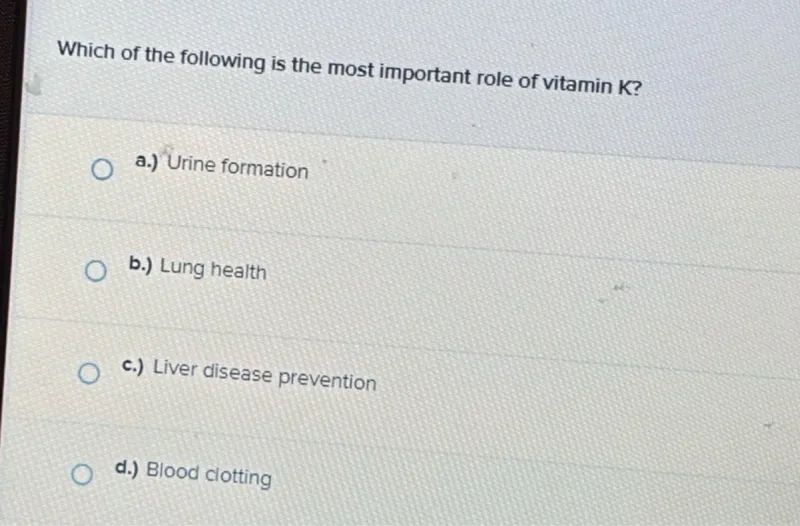Questions: Which of the following is the most important role of vitamin K ? a.) Urine formation b.) Lung health c.) Liver disease prevention d.) Blood clotting

Transcript text: Which of the following is the most important role of vitamin $K$ ?
a.) Urine formation
b.) Lung health
c.) Liver disease prevention
d.) Blood clotting





